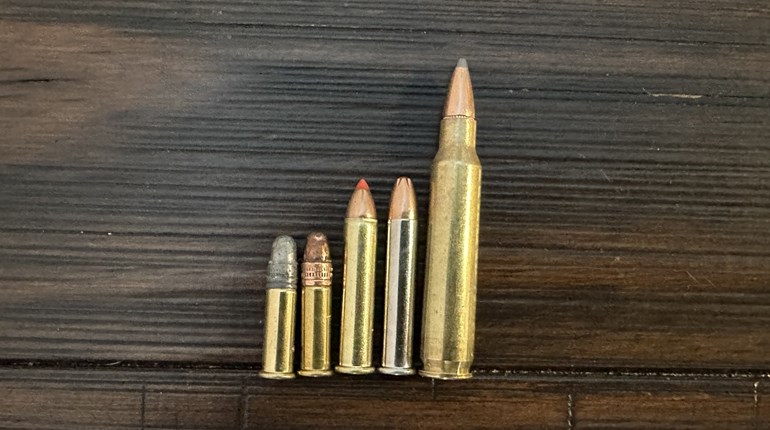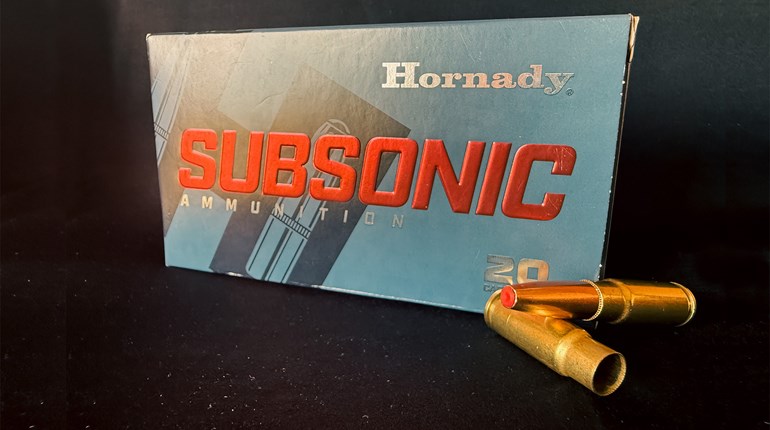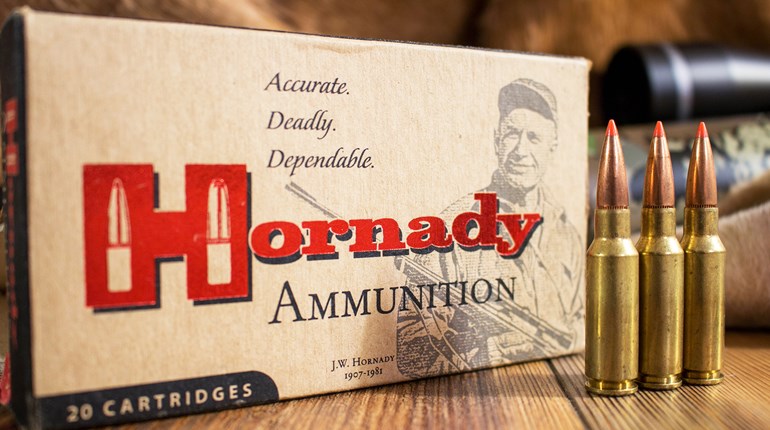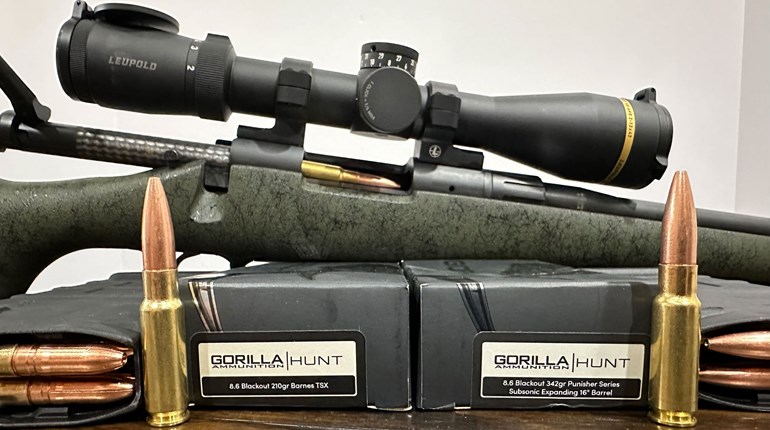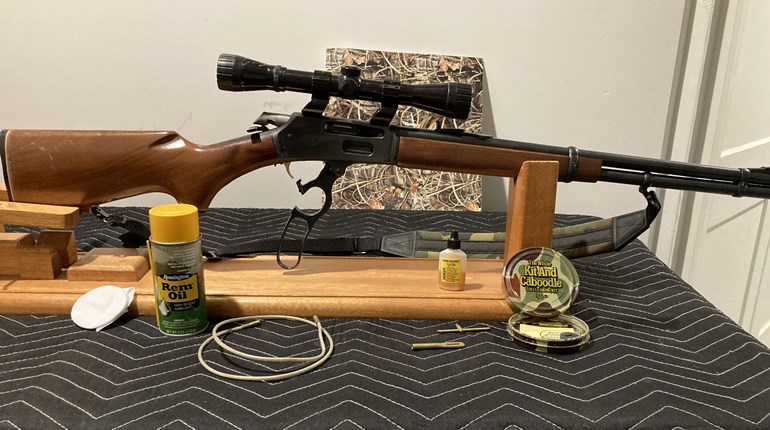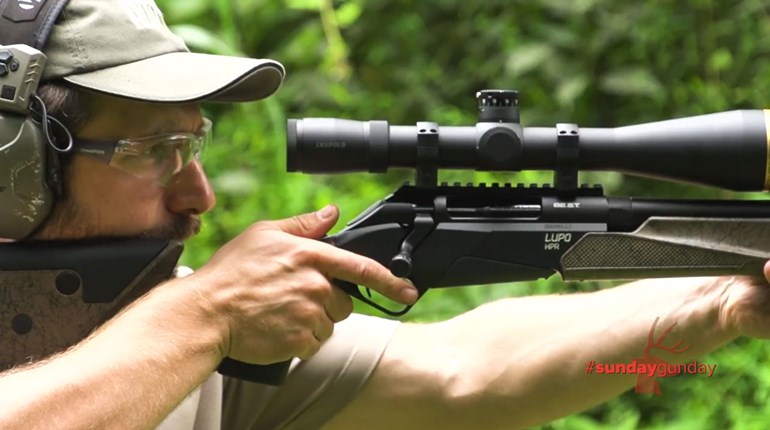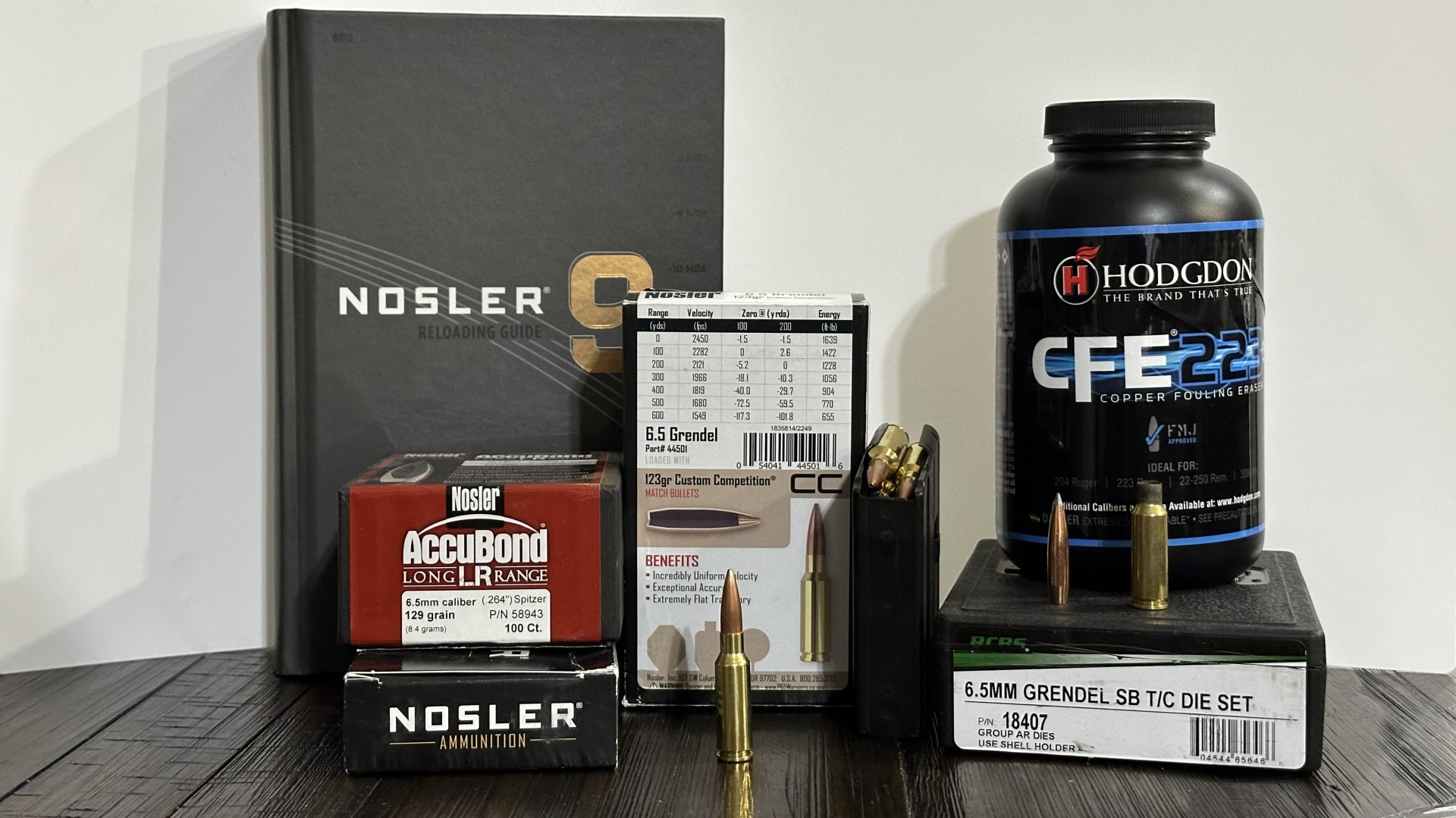
Most people, even new shooters, know of the most common calibers, like the .223 Remington, .308 Winchester or 6.5 Creedmoor, but in this new series, we’re going to expand your sphere of cartridge knowledge. First up: the 6.5 Grendel.
Over the last 15 years or so, the most popular round to shoot the now-renowned 6.5mm projectile – .264 in Imperial measurements when it comes to bullet diameter – was the 6.5 Creedmoor, which rose to prominence due to performance and some solid marketing on Hornady’s part. But the Creedmoor cartridge isn’t the only round that makes use of this highly aerodynamic caliber. The 6.5 Grendel is another 6.5 cartridge, and it’s one you may want to add to your repertoire.
From Fairytale Beginnings
Anyone who’s taken a literature class has undoubtedly read the epic known as Beowulf. If you probably slept through English class, here’s the gist of the story: Grendel is the first of three antagonists in the Old English tale. As a monstrous outcast, Grendel seeks revenge against the Danes by terrorizing them. Beowulf, a warrior for the Geats (a Swedish tribe) battles and fatally wounds Grendel. Grendel’s mother (if you’ve seen the awful, CGI-abomination of a movie, this is Angelina Jolie’s character) attempts to avenge her son’s death, but is also defeated and killed by Beowulf. Yes, Grendel is the bad guy, but it fits, because the 6.5 Grendel is bad ... but I mean that in a good way.
Bill Alexander invented the cartridge in 2003. You might recognize his last name, as he’s the founder of Alexander Arms, which made the first 6.5 Grendel rifles (the company also makes the .50 Beowulf, which we’ll cover in another article – you can already see the tie-in, I’m sure). All you need to make your AR-15 into a 6.5 Grendel is a new magazine that works with cartridges like the 6.8 SPC, .224 Valkyrie and others.
Big Things in Small Packages
So, what makes the 6.5 Grendel such a cool cartridge? First off, it was the first AR-15 cartridge capable of realistically reaching the 1,000-yard mark. That, in and of itself, is a pretty sweet claim to fame; back in the day, that was still quite the challenge, and it still is for the majority of us. The fact that it fits in an AR-15 is even cooler. It’s the same length as a .223 Rem. cartridge at 2.260 inches overall length (this includes the bullet seated in the case); while the 6.5 Creedmoor measures 2.825 inches.
That doesn’t sound like much, but when you look at powder capacities, it’s incredibly efficient, doing more with less. The Grendel case has a 30-grain case capacity compared to the 6.5 Creedmoor’s 49.5-grain capacity using the same bullet. You might be thinking, “Okay, it’s efficient … so what?”
The cool factor of the Grendel doesn’t end there. Since it was designed for the AR-15 platform specifically, it can be shot from a light, manageable semi-auto. Plus, there’s hardly any recoil because of the 6.5 Grendel’s small case capacity paired with the fact that some recoil energy is bled off due to the nature of the AR-15’s gas system. This makes it a great practice or plinking cartridge, and as you get better at shooting at distance, you don’t need to buy a new gun if you want to shoot further.
While it’s not as fast as the Creedmoor, that’s actually a benefit depending on the situation, especially in hunting scenarios. The Creedmoor got its name from the renowned shooting complex for competition shooting; the 6.5 Creedmoor was initially intended for punching paper targets, which is fine, but match bullets aren’t hunting bullets. The 6.5 Creedmoor does tags in the field, but the 6.5 Grendel is just as capable, if not more so.
Because the 6.5 Grendel bullet is going slower, if you’re not taking long pokes, it will have plenty of energy to penetrate as necessary into a whitetail deer’s vitals, but it also means bullet construction isn’t as important. Certain bullets don’t hold up well when they hit hard objects like bone at high speeds; the projectile isn’t designed to hold up under those hard impacts, and they come apart (the phenomenon is called jacket-core separation). By slowing the bullet down to 6.5 Grendel velocities, there’s not so much force imparted on the bullet upon impact, and the bullet is more likely to hold together, maintaining its momentum to deliver a quick, ethical kill.
Getting Grendel Gains
While all that information is great, it doesn’t mean anything if ammo isn’t available. According to Midwayusa.com, Hornady and Nosler make a majority of the factory ammo for the 6.5 Grendel; these two companies account for all but six of the 14 available options on Midway USA’s website.
It’s also relatively easy to handload for, as many companies such as Hodgdon, Nosler, Hornady, Sierra and Barnes list data for the cartridge. Two of my personal favorite loads respectively use a Barnes TAC-TX bullet and a Nosler AccuBond Long Range. The former, with its all-copper construction, penetrates extremely well since it doesn’t shed weight, and can be fired at higher velocities because of its lighter weight compared to typical .264-caliber bullets (typically around 140 grains in weight). The Nosler variant, because of its thin jacket, still opens at lower velocities (as low as 1.300 FPS), but because of its bonded design, holds together at higher velocities after impacting a hard object like bone.
To recap, the 6.5 Grendel gives shooters a semi-auto, light recoiling rifle that can shoot out to 1,000 yards, and can make for a fantastic hunting rifle and cartridge combination, and all that’s needed is an upper swap and a new magazine (6.8 SPC mags work fine). What’s not to like?













